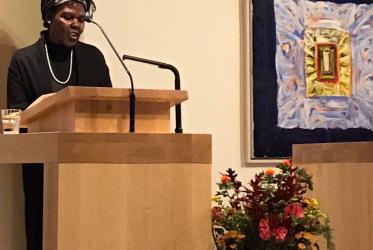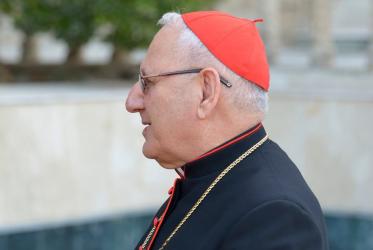Displaying 61 - 80 of 192
Peace is common denominator of all major religions
05 March 2019
Human fraternity is a divine calling, says WCC general secretary
03 February 2019
Fr Alexi - a peacemaker in Syria
21 December 2018
A moment in ‘Time’: an interreligious vision in Erlangen
20 December 2018
WCC moderator receives honorary doctorate from university in Norway
10 November 2018
Romani people seek “lives of decency, dignity, and justice”
27 September 2018
Paving the way for ecumenical studies, learning English in Bossey
24 September 2018
WCC congratulates Cardinal Sako, Chaldean Church
02 July 2018
Pope Francis at the World Council of Churches
31 May 2018
Unifying faiths in peace and harmony through dialogue
10 April 2018












